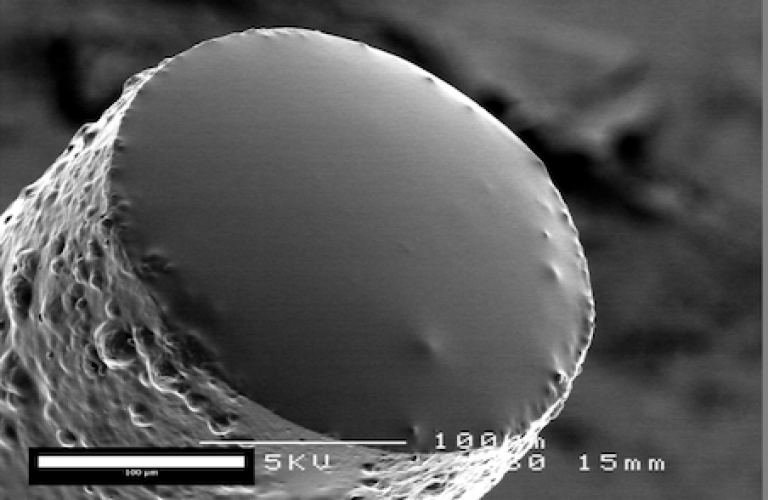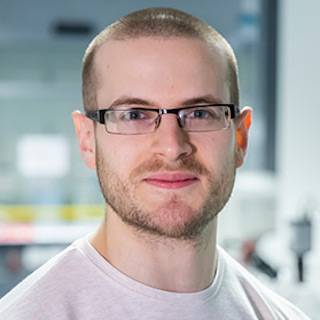High frequency, miniature ultrasound catheters can be invaluable for guiding minimally invasive medical procedures by visualising tissue from within the human body.

In current-generation probes, ultrasound is generated and received electrically, using piezoelectric or capacitive micromachined transducers. Whilst these technologies are well suited for some clinical applications, it is often challenging to achieve sufficient imaging depth and spatial resolution.
Optical methods for transmitting and receiving ultrasound are emerging as alternatives to their electrical counterparts. They offer several advantages, including the potential to generate and detect the broadband ultrasound fields (tens of MHz) required for high resolution endoscopic imaging. Broadband ultrasound can be generated optically via the photoacoustic effect, in which modulated incident light is absorbed by an optically absorbing material and the resulting deposition of thermal energy leads to a propagating ultrasound wave. Optical reception of ultrasound waves reflected by tissue can be performed by measuring acoustically-induced changes in the reflectance of a polymer Fabry-Pérot cavity. This type of sensor can provide high sensitivity, broad bandwidths extending to several tens of MHz, and acoustically small element sizes.
Highly miniaturised pulse-echo ultrasound probes can be created with fibre-optic implementations of optical ultrasound transmitters and receivers, and these all-optical devices are readily integrated into catheters and needles. Fibre-optic ultrasound receivers with Fabry-Pérot cavities can also be used to perform photoacoustic imaging of tissue to obtain molecular contrast, and to receive transmissions from ultrasound imaging probes external to the patient to perform medical device tracking. The all-optical ultrasound platform within WEISS will support multiple projects, including GIFT-Surg, with a focus on fetal medicine (Wellcome-funded), and those from an EPSRC-funded Healthcare Technologies Challenge Award (HTCA), with foci on intrvascular imaging for vascular surgery and interventional cardiology.
Platform lead:
Prof Adrien Desjardins
 Close
Close










